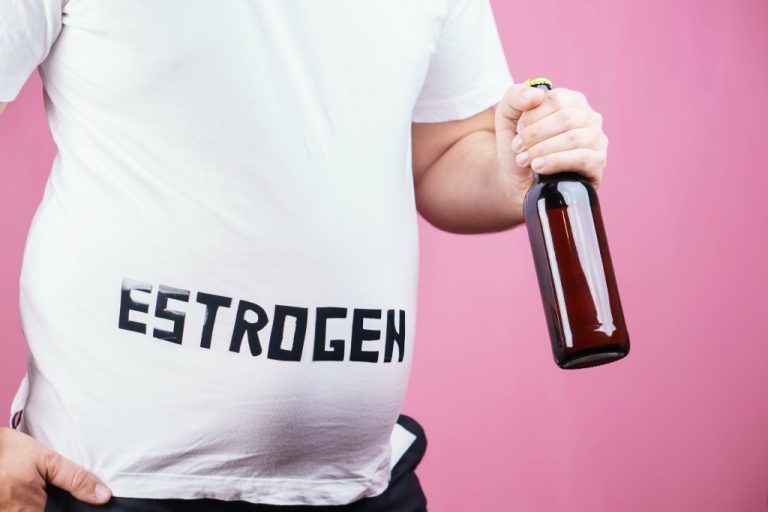As part of a collaborative effort examining the effects of long-term alcohol self-administration in rhesus macaques, we examined DS dopamine signaling using fast-scan cyclic voltammetry. We found that chronic alcohol self-administration resulted in several dopamine system adaptations. Following https://ecosoberhouse.com/ long-term alcohol consumption, male macaques, regardless of abstinence status, had reduced dopamine release in putamen, while only male macaques in abstinence had reduced dopamine release in caudate. In contrast, female macaques had enhanced dopamine release in the caudate, but not putamen.

Details regarding the mechanism of action of these compounds are outside the scope of this review. In brief, the pharmacological profile is established for disulfiram (an aldehydedehydrogenase inhibitor), naltrexone (an opioid receptor antagonist) and nalmefene (an opioid receptor modulator), whereas the mechanism of action of the anti‐alcohol relapse drug acamprosate is not fully understood. An indirect activation of mesolimbic dopamine via accumbal glycine receptors and ventral tegmental nicotinic acetylcholine receptors (nAChRs) appears likely [2, 3], but additional targets has been suggested (for review see [4]). Finally, the clinical efficacy of these agents is limited [5], possibly due to the heterogeneous nature of the disorder and the complex neurochemical mechanisms underlying alcohol dependence.
1. Dopamine
Individuals with low dopamine levels may experience a loss of motor control, such as that seen in patients with Parkinson’s disease. They can also develop addictions, cravings and compulsions, and a joyless state known as “anhedonia.” Elevated levels of dopamine can cause anxiety and hyperactivity. «We have known for a long time that alcoholism runs in families, which implies a genetic risk,» said how does alcohol affect dopamine Dr. Raymond F. Anton, Distinguished Professor and director of the Center for Drug and Alcohol Programs at the Medical University of South Carolina. Drugs, on the other hand, can cause long-term damage, with dopamine levels and brain cells taking a year or longer to heal. Dopamine levels stay increased in the absence of this specific neurotransmitter as long as the person consumes alcohol.
Neuroimaging studies have also dramatically advanced our understanding of the brain’s response to alcohol and the neurochemical basis of alcohol dependence. Positron emission tomography (PET) and single photon emission computed tomography (SPECT) use radiotracers that bind specifically to key receptors of interest, to quantify receptor location and availability. Neurotransmitter release can also be indirectly quantified using PET, through measurement of the amount of tracer that is ‘displaced’ from the receptor when endogenous neurotransmitter is released in response to a pharmacological (or other) challenge.
FC mediation of AB
For example, serotonin can increase the activity of GABAergic neurons in the hippocampal formation (Kawa 1994), a part of the brain that is important for memory formation and other cognitive functions. Consequently, alcohol’s effects on serotonin may alter the activity of GABAergic neurons in the hippocampal formation. These changes may disrupt cognition and possibly contribute to alcohol-induced memory loss and impaired judgment. Serotonin’s actions at the synapses normally are tightly regulated by proteins called serotonin transporters, which remove the neurotransmitter from the synaptic cleft after a short period of time by transporting it back into the signal-emitting cell.
- Well validated tracers for other targets such as those in the serotonergic system do exist, but their use in alcohol dependent individuals is not well characterized.
- Initial transcriptome studies indicated that alcohol increased levels of TSPO (18 kDa translocator protein, that is upregulated in activated microglia).
- The dorsal striatum (DS) is implicated in behavioral and neural processes including action control and reinforcement.
- Even if you’ve stopped using the substances for a long time, exposure to the substance may trigger your desire and put you at risk of relapsing.
- This effect has been examined in greater detail elsewhere and was found to be driven primarily by the first month of drinking, post abstinence [32].
But over time, alcohol can cause dopamine levels to plummet, leaving you feeling miserable and desiring more alcohol to feel better. The Internet trend involves giving up anything that quickly boosts dopamine, which is the feel-good chemical made in your brain that acts as a messenger between nerve cells in your brain and the rest of your body, according to Cleveland Clinic. Dopamine is part of your brain’s reward system, because it gives you a sense of pleasure, as well as the motivation to do something when you’re feeling pleasure. It also plays a role in many body functions, including memory, movement, motivation, mood, attention and more.

